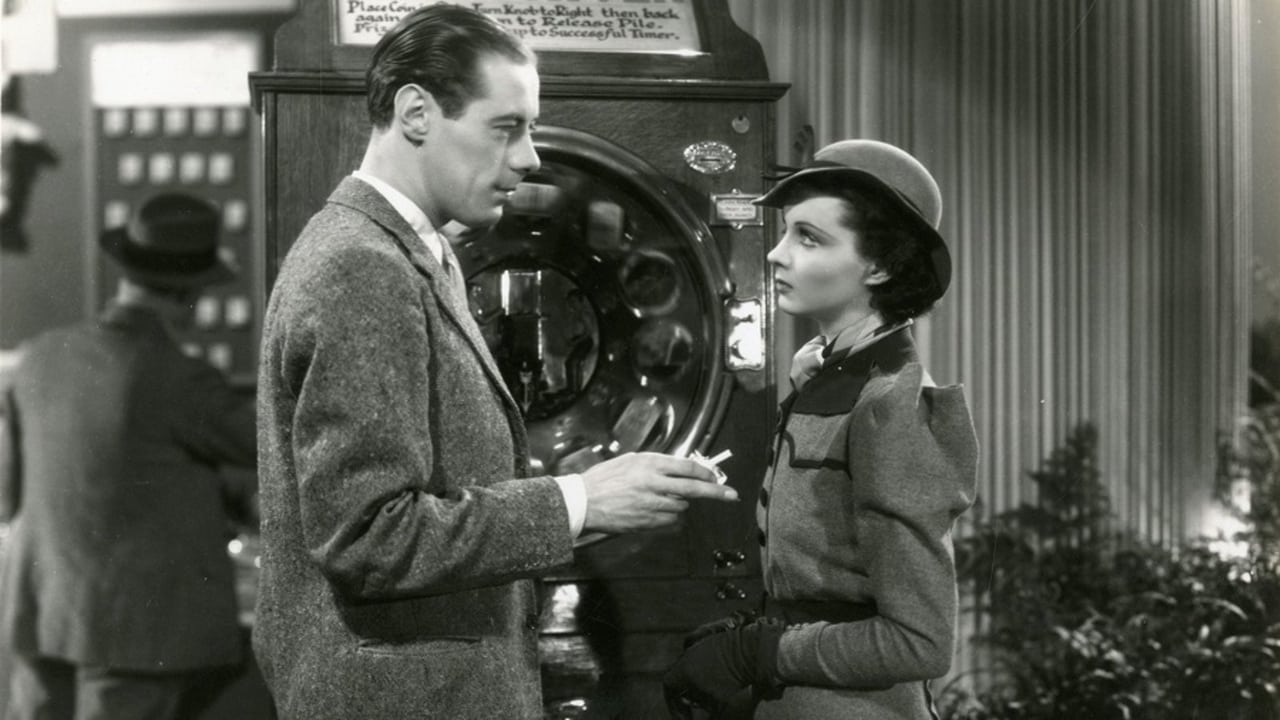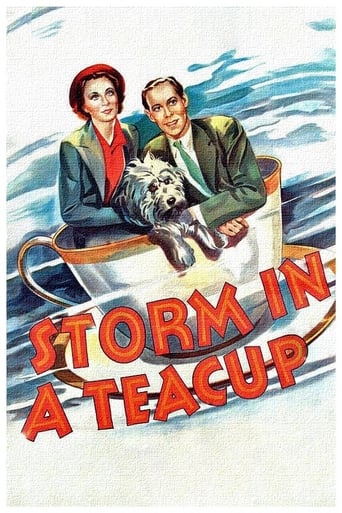Phonearl
Good start, but then it gets ruined
Hulkeasexo
it is the rare 'crazy' movie that actually has something to say.
Calum Hutton
It's a good bad... and worth a popcorn matinée. While it's easy to lament what could have been...
jovana-13676
I love animals! And I love Rex Harrison and Vivien Leigh. The honest journalist and the feisty daughter of a local politician make a perfect couple of animal rights activists, falling in love while rescuing a dog. The film shows awareness that fascism is on the rise and the British humorous attitude about it, cleverly making an antifascist social commentary while dealing with animal rights. I know it sounds boring, but it isn't. The world of 1937 was free-spirited, even with fascism looming over, and film was still a new and exciting art form. Screwball comedies champion free women and free men.
skiddoo
Another connection to Hitler is that he was Austrian and went to Germany to make it an "Aryan" stronghold, and Gow is clearly English and wants to get elected on a Scotland for the Scots platform. (His meeting with the other mucky mucks, in matching Highland garb with incredibly frilly shirts, and the massive mural behind him on his broadcast, shows what a piece of theater the whole thing is. His cohorts are so anglicized he has to remind them to say Scottish not Scotch.) Harrison's character goes right to the heart of it asking if this were "Berlin or Moscow." And making a speech that the British will put up with anything but bullying or cruelty. Considering the fact that there was an anti-cruelty society for animals before there was one for children there, centering the movie around the welfare of a dog had particular resonance.There are a lot of funny bits--such as a mansion full of dogs of all sorts and a reference to the BBC as encouraging wildness in society, and much British character--such as the treating of Irish servants as less than human by the upper class of that time, and the use of song to make a mocking protest and laughter to bring down the mighty.I believe in Britain, even back then, as here it is that a woman cannot be FORCED to give evidence against her husband not that she cannot if she wants to testify against him, such as in a divorce case or if he were a criminal and she wanted to see him put away.Gow reminds me strongly of David Horton in the Vicar of Dibley. Both were forced to change although one has to wonder to what extent.
David Frieze
Hidden from me, anyhow - I'd never heard of it until browsing through my local library's video collection. Imagine an Ealing comedy as directed by Frank Capra. All of the acting is first-rate (and Vivien Leigh, pre-"Gone with the Wind", was about as beautiful as any woman could be), and the sets are unusually lavish for what must have been a medium-budget film in its time. The characters are strong yet sufficiently complex to lift the story above the simplistic comic melodrama it might have been - I can't imagine many American films of the time (or of this time) that would allow the "villain" of the piece enough courage to face down and walk through a mob that has just publicly humiliated him and is ready to attack him. The comedy is wonderfully handled, especially during the scene in which a pack of dogs runs rampant through the villain's stately home, and during the climactic courtroom scene. (The film's funniest line makes sense only in the context of the film: Ursula Jeans' anguished "Harold, he called me a woman!") "Storm in a Teacup" is a genuine delight.
FelixtheCat
Rex Harrison portrays a newly arrived British journalist in Scotland who uses his new job at a newspaper to take on the local political bigwig in this pleasing British comedy. The unfortunate circumstance is that while he battles the politician, he happens to be falling in love with the politician's beautiful daughter, Vivian Leigh. The issue at hand is the life of a dog that Leigh's father has coldly ordered to be put to sleep. It seems that its owner could not afford a dog license. Dog lovers should enjoy one scene in particular where what seems to be hundreds of dogs of all shapes and sizes raid the politician's mansion.

